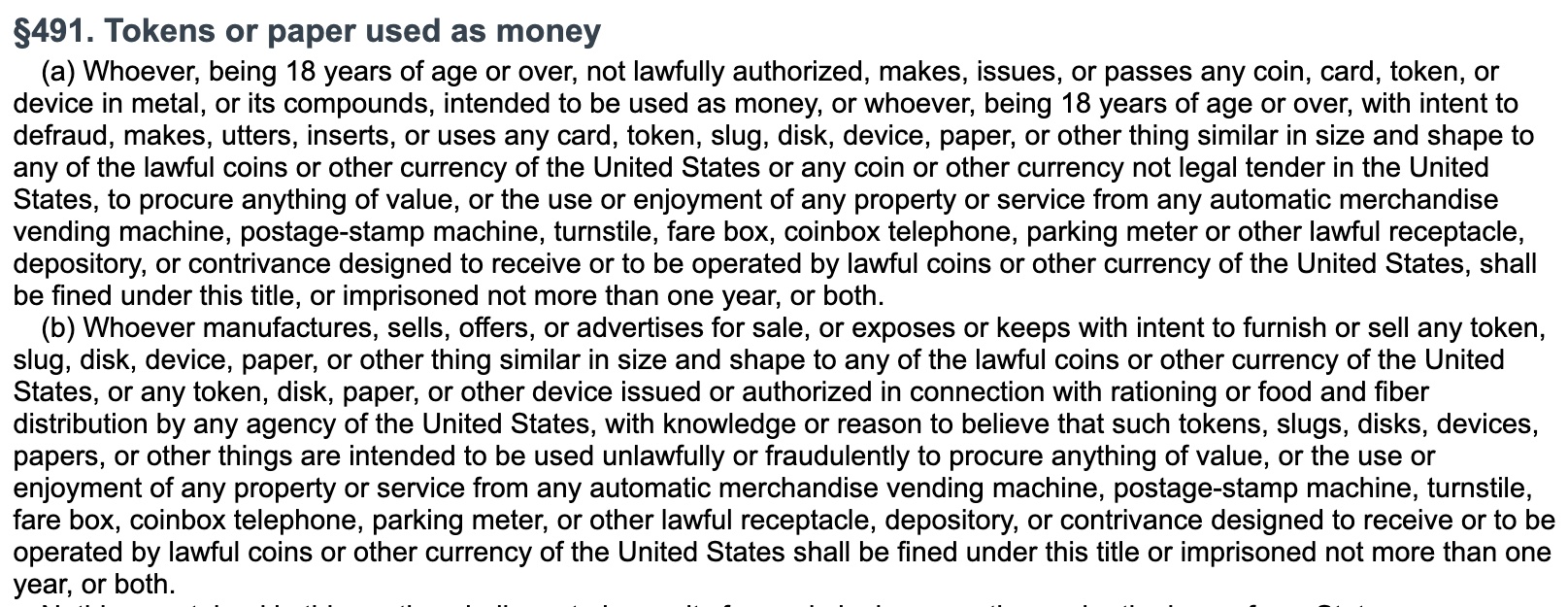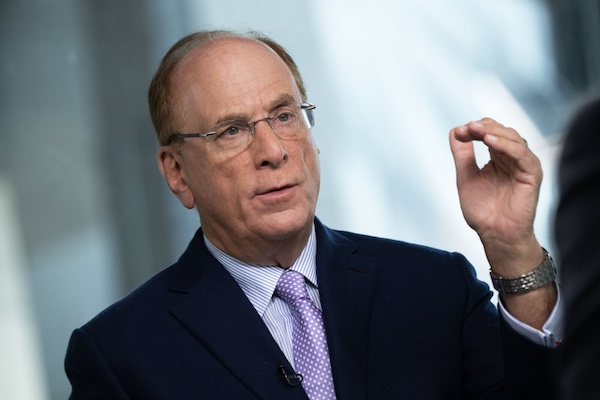

Published on May 28, 2024
The Dark Secret About Crypto No One Is Telling You By Graham Summers, MBA | Chief Market Strategist
The investing world is currently falling for one of the greatest trojan horse operations in history.
The term “trojan horse” relates to the famous Greek poem Aeneid, which chronicles the 10-year siege of the city of Troy by Greek soldiers. In its simplest rendering, after years of failing to enter the city through brute military strength, the Greeks opted for an act of deception.
The Greek army built an enormous wooden horse. After sneaking a small group of elite soldiers within the horse, the remainder of the Greek army boarded their ships and pretended to sail away.
The Trojans, believing the horse was meant to pay homage to their military success, brought the horse within the city gates. That night, the hidden Greek soldiers snuck out of the horse and opened the city gates for the remainder of the Greek army which had secretly sailed back at nightfall.
The Greeks ransacked Troy, slaughtering their enemies save for a small group of women and children. Thus was the Trojan war ended, and the metaphor of the “trojan horse” born.
Trojan Horse: noun
1: someone or something intended to defeat or subvert from within usually by deceptive means
2: a seemingly useful computer program that contains concealed instructions which when activated perform an illicit or malicious action (such as destroying data files)
Something quite similar to what the Greeks accomplished in Troy is occurring today. But the scope of the deception is exponentially more massive…
Indeed, rather that targeting a single city, the perpetrators enacting today’s Trojan Horse seek to overhaul the entire financial system.
Their purpose?
A backdoor means of introducing a new financial system that would act as a universal accounting ledger through which the government and well-connected elite could track, monitor, and audit every single financial transaction performed by the other 330 million of us… right down to assigning each transaction with a specific serial number.
And their trojan horse is crypto currencies.
Yes, crypto-currencies, or crypto, for short.
Before you accuse me of being a conspiracy theorist… or delusional… consider the following…
Crypto Currencies Violate Federal Law… So, Why’s Isn’t Anyone Being Arrested?
By federal law no one but the U.S.’ central bank, the Federal Reserve, is permitted to print currency. Anyone who is caught attempting to produce a new, counterfeit currency faces up to $250,000 in fines and 20 years in prison.
See for yourself… taken directly from our legal code on the House of Representatives’ website.


Clearly, crypto currencies would qualify here… they’re literally called “currencies,” are backed by nothing (as opposed to a stock or bond), and are used as a medium of exchange.
And not ONE crypto currency creator has been arrested or jailed.
Why is this?
Consider that last year, the U.S. secret service arrested 197 individuals for counterfeiting currency. All told, the Feds seized some $21.8 million in counterfeit currency.
Million… with an “m.”
If the Feds are willing to arrest people for producing millions in fake U.S. dollars… why would they permit other individuals to create crypto currencies that are valued in the HUNDREDS of billions of dollars?
Indeed, globally there are over 86 crypto currencies that are valued at over $1 billion. Not one of their creators has yet to be arrested (Sam Bankman-Fried wasn’t charged with counterfeiting, but with stealing clients’ funds).
Indeed, the only example of a crypto founder being arrested that I can find pertains to when the creator doesn’t actually create a currency but is simply embezzling funds or running a Ponzi scheme.
Why would the Feds permit an entire industry of counterfeit currencies (some 13,000 at last count) valued at over $2.7 TRILLION to exist?
Dr. Harald Malmgren knows the answer… but you’re likely not going to want to hear it.
The Ultimate Government Insider Pulls Back the Curtain on Crypto
Dr. Malmgren served as a Senior Aide to FOUR separate Presidents of the United States as well the Senate Committee on Finance. He’s the kind of beltway insider who casually mentions meeting people like Vladimir Putin in person… or being in the room with JFK at the peak of the Cuban Missile Crisis.
Suffice to say, when someone like Dr. Malmgren talks about what policymakers and Beltway insiders are doing, his words carry a LOT of weight.
Dr. Malmgren has laid out precisely what policymakers are up to in clear language. I apologize for the long quote here… but when do you have a former advisor to four US President lay out precisely what Washington is up to?

Banks in the US and Europe are trying to develop a cashless transactions system… The concept is to establish a comprehensive ledger for a business or a person that records everything received and spent, and all of the assets held – mortgages, investment portfolios, debts, contractual financial obligations, and anything else of market value including pleasure boats, automobiles, and other machinery.
He continues…
Governments would very much like such ledgers to exist because they could view everything that is taking place financially in real time, including ability to evaluate net worth, patterns of spending and of earned and unearned income, and of course, an instant assessment of all taxable activities.
The people now intensively working on a mechanism for a cashless society are building it around the concept of blockchain technology. In essence, there would be a single ledger that records each expenditure or revenue event (the block), linking them chronologically with every other subsequent purchase, sale, or revenue event in a recorded chain. It could initially begin with a complete ledger of individuals or distinct businesses which could then be connected with another to a bigger ledger that a bank or other large financial institution might maintain for all of its clients. Banks or other designated financial institutions could then link their own comprehensive ledgers with those of the others.
Ok, so banks would be able to access everything you do… that’s not that different from today. After all, if you’ve got nothing to hide, what’s the issue here?
Dr. Malmgren spells it out...
We might also consider that if governments could see everything then various regulators would be enabled to issue guidance on what’s normal or appropriate personal and business behavior. If your funds are being used in a statistically abnormal manner then they can start routinely asking you for an explanation, if it was drug money or money laundering or purchases of regulated products like alcoholic beverages or firearms….Regulators motivated by moral self-justification can have boundless imagination in ways to compel proper behavior in society.
So cashless, single ledger systems would raise everyone’s concerns about privacy and surveillance. Basically the government would be able to start questioning anyone vigorously about virtually every aspect of daily living. I can understand why they would want this, but it would be appalling for the rights of individuals.
Source: LinkedIn.
Before you write off Dr. Malmgren’s views… consider what the most powerful insiders in finance have to say about crypto today.
Jamie Dimon, CEO of JP Morgan, the largest bank in the U.S. with $3.7T in assets.

“Bitcoin is a scam and fails as a currency.”
Why?
Mr. Dimon doesn’t like the “anonymity” Bitcoin provides as well as the “the lack of regulation.”
So, what does he like?
A digital currency that can be traced using blockchain. He puts this in clear terms in the quote below.
Not convinced?

Larry Fink, CEO of BlackStone, largest asset manager in the world with ~$10T in assets under management.

BlackRock , the largest asset manager in the world with ~$10 trillion in assets under management, has launched a Bitcoin ETF (IBIT).
Why did they do this?
Larry Fink, the CEO of BlackRock, made it clear that they are creating “transparency” in crypto with their Bitcoin ETF.
And this is just the first step. His goal is to "tokenize" every asset so that it's traceable via blockchain.


Connecting the Dots...
Connect the dots here…
The ultimate Beltway insider says that policymakers want to introduce a blockchain-based financial system through which the government can track everything you do.
The CEO of the largest bank in the U.S., decries the anonymity of crypto in its current form and believes that the true value in crypto would be a block-chain based system in which transactions can be traced on an individual basis.
The CEO of the largest asset management firm in the world wants to tokenize every asset in the financial system so everything can be on a “general ledger" that is traceable.
Put simply, the government wants to get rid of cash and financial privacy so it can control more of the financial system. And we know the banks and asset management firms are on board with implementing this new system.
But who is going to process all the payments that will be routed into this blockchain-based generalized ledger?
Visa (V)
In 2018, Visa (V), the largest credit card company in the U.S., with over 2.9 BILLION customers, filed a patent with the U.S. The U.S. Patent and Trademark Office (USPTO) to create a digital currency that will function using a centralized computer system using blockchain technology.
See a copy of the application below.

Let's connect some more dots...
Just a few months ago, Visa announced that it is partnering with JP Morgan to create a block-chain based financial system that will “tokenize” cash and other assets.

Again, crypto is a Trojan Horse… and the Powers That Be will use it to introduce a new financial without privacy.
This represents the single greatest monetary development since the U.S. abandoned the Gold Standard in 1971.
This will happen whether we like it or not. The capital is being deployed and the system is being built. Moreover, the government WANTS this to happen because it will give it even greater control over our financial decisions.
The only question we have as investors is...
"Do I want to profit from this or not?"
If you the answer to that question is "yes" then you want to own Visa (V) and JP Morgan (JPM).
Buying the Digital Currency Cartel
V and JPM represent the future digital currency cartel. They, along with the Federal Reserve, will form the backbone of the new financial system.
The Fed will issue currency.
Visa (V) will be the dominant payment processor that consumers use to buy and sell things in a cashless society.
JP Morgan (JPM) will be the bank that deposits or withdraws the majority of funds that flow through this new system.
V and JPM will also have the added benefit of being able to CHARGE consumers for the right to use this system.
V charges anywhere from 1% to 3% on every payment processed using its system. It also charges between 13% to 18% in interest on credit card balances. So it will make money when someone buys or sells something... and when he or she fails to clear their monthly credit card balance. It will also likely make money for charging the Fed/ Federal Government for access to its part of the new financial system.
By way of contrast, as the largest bank in the US, JPM will move and store a major portion of the new financial system, charging fees for every step along the way. The exception will be the interest JPM pays on deposits, but that rate is A) much lower that what it earns for parking capital at the Fed and B) JPM will loan out up to $10 in loans into the economy for every $1 it pays interest on in deposits.
And while JPM pays ~1% in interest on deposits, it will charge anywhere from 9% to 30% on the loans it generates. Not to mention the fees it will charge for tokenizing assets and storing this information on the block-chain based financial system.
Again, V and JPM will represent a kind of digital currency cartel as blockchain becomes the backbone of our new financial system. They will be like toll booths on a financial super highway nearly everyone has to use in order to move money in our economy.
And best of all, both are relatively cheap today.
V trades at a forward P/E of 24.
This is its cheapest P/E in over ten years. The investing world is obsessed with AI (and for good reason), but they are missing the opportunity to own the future #1 payment processor for a new financial system at its cheapest valuation in a decade.
Sure, V might not see revenues grow exponentially in a single year like Nvidia (NVDA), but NVDA is a picks and shovels play on the AI revolution. Its primary customers are other tech companies looking to build out the new AI infrastructure. And at some point competitors will come into the space and eat at its market share.
V is the #1 payment processor, in a strategic alliance with the #1 bank, building its own blockchain-based part of a new financial system. Its customers are EVERYONE in the US (and much of the rest of the world). Unless the economy ceases to exist, V will continue to grow.
Action to Take: Buy Visa (V)
In contrast, JPM trades at a forward P/E of 12. It has been slightly cheaper in the past, but this is a 100+ year old business, the largest bank in the US, and the darling of the Federal Government.
When other banks go bust (Bear Stearns, Silicon Valley Bank, etc) JPM is the firm the Feds give sweetheart deals allowing it to acquire the failing banks' assets for pennies on the dollar.
Moreover, as the largest bank in the US, JPM is literally too big to fail. No politician or policymaker is going to allow JPM to come under major duress without introducing a bailout/ life-line. This is especially true when you consider that JPM has the largest number of high net worth/ corporate clients in the US.
And it, along with the Fed, will be the backbone of the new financial system.
Action to Take: Buy JP Morgan (JPM)
This concludes this report. Thank you for reading.